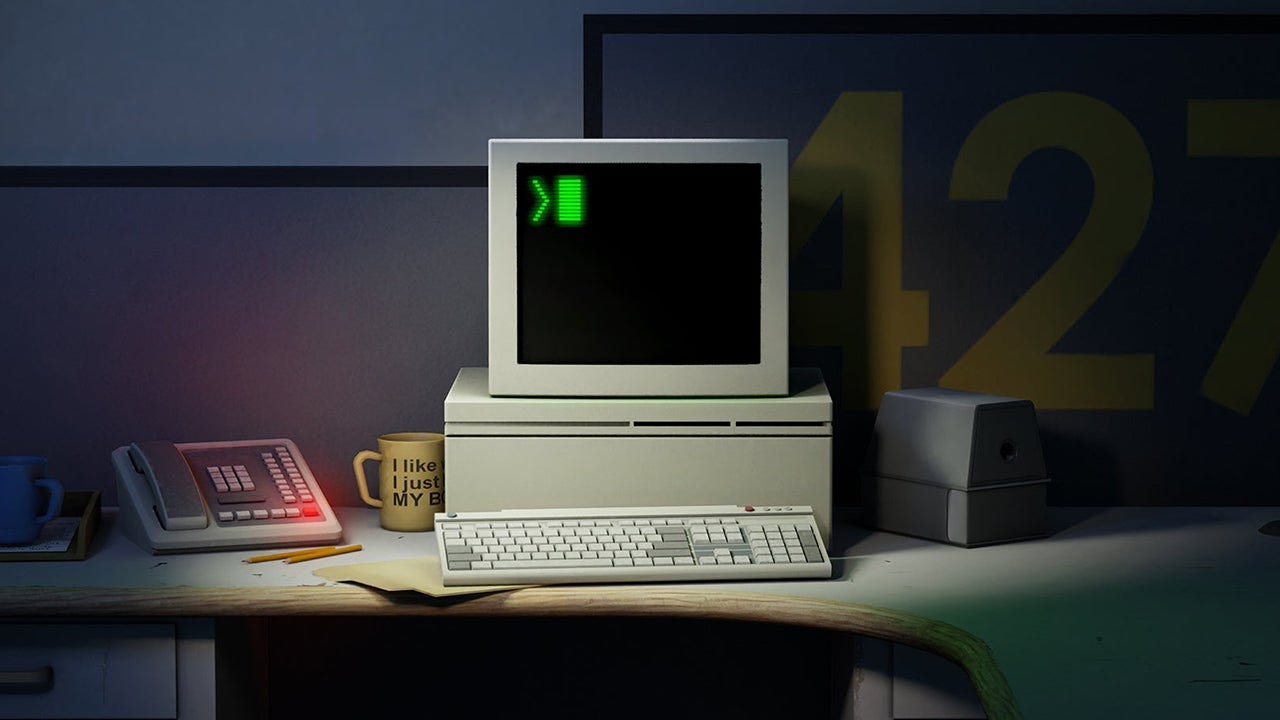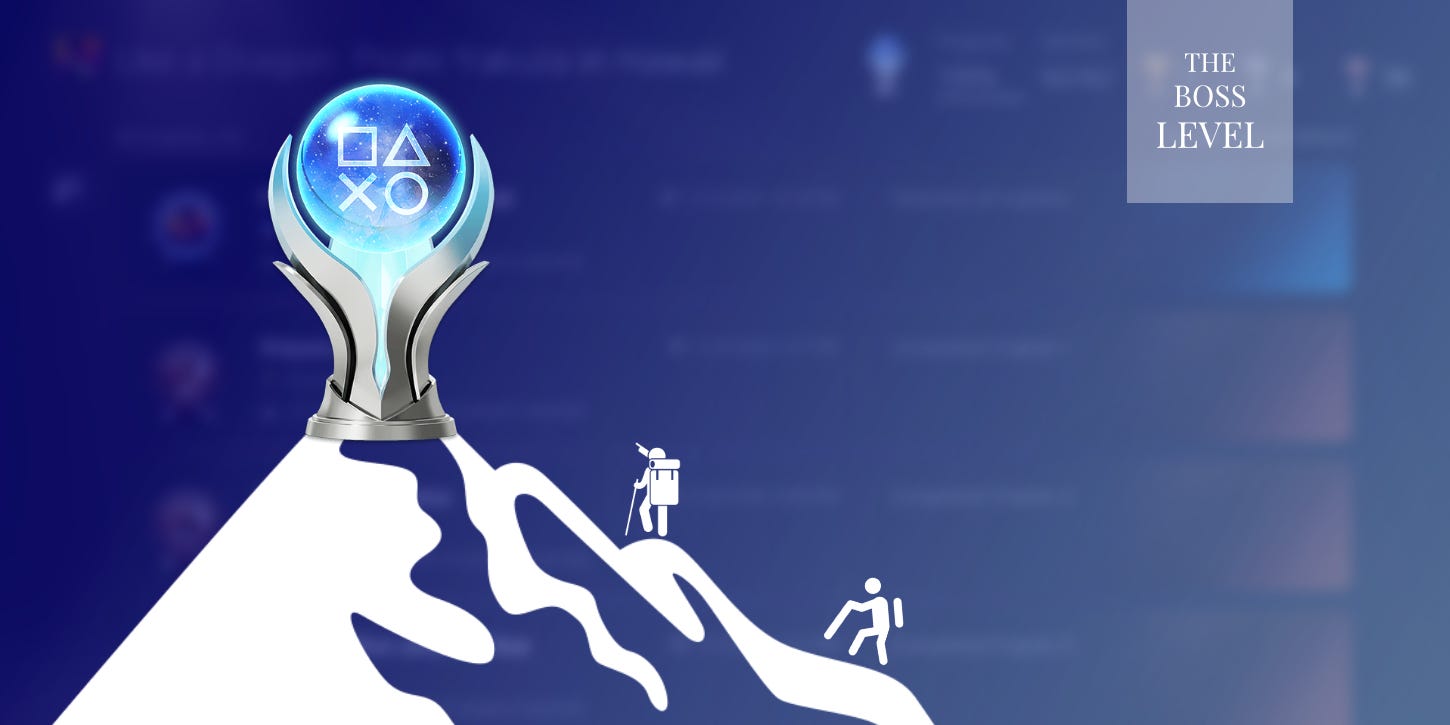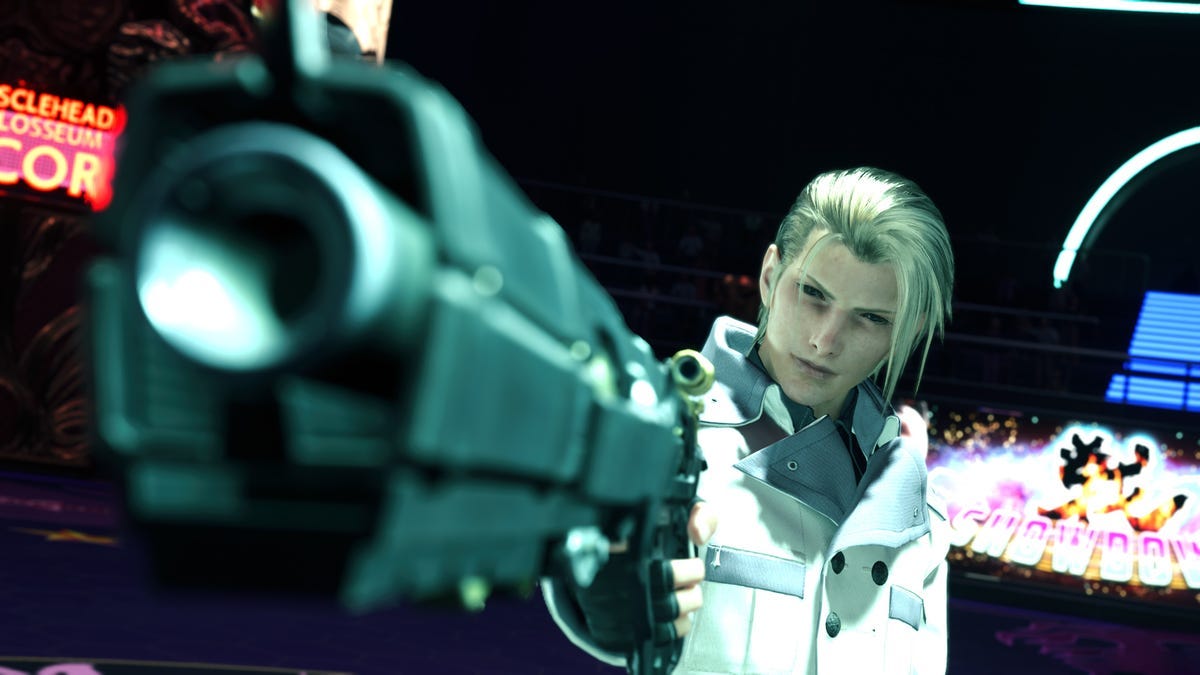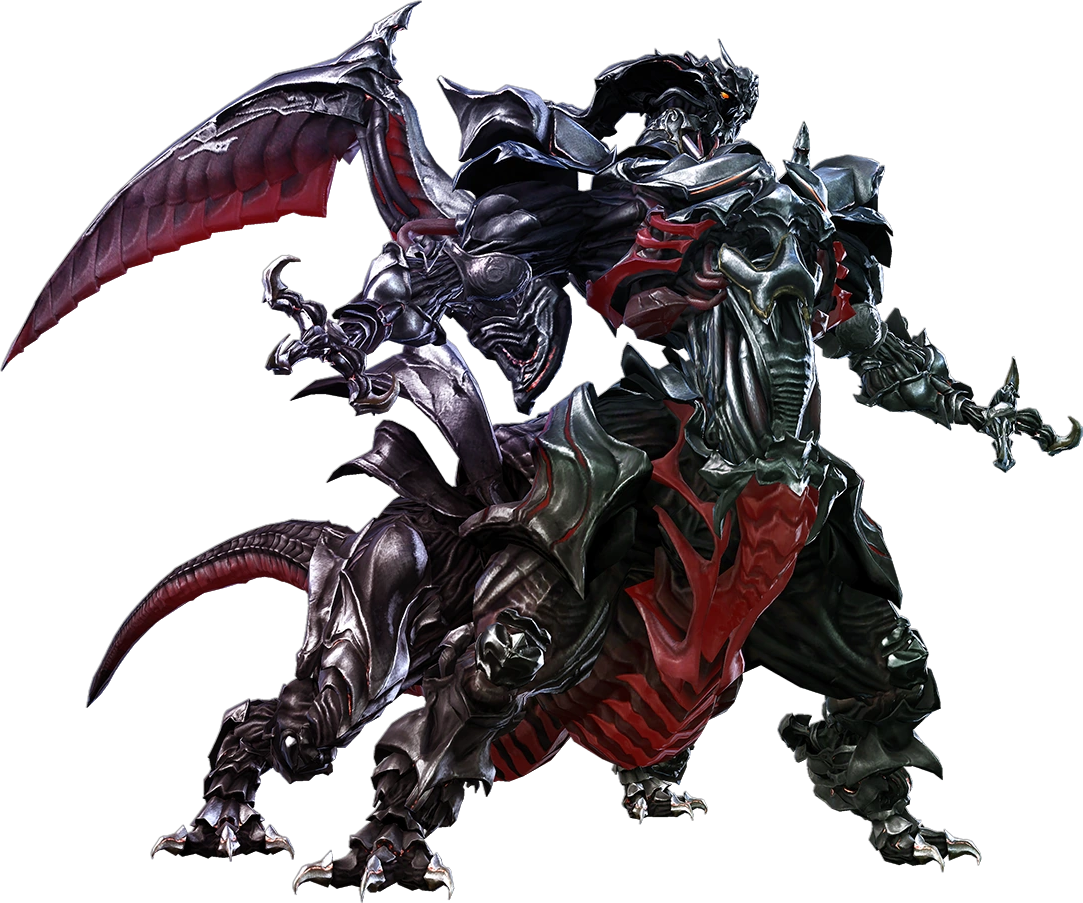You Don’t Need to Platinum Every Game You Play
That goes for your career and personal goals as well
Full disclosure: there’s a hint of irony behind why I wrote this post.
I recently earned the platinum trophy for Like a Dragon: Pirate Yakuza in Hawaii.
Compared to other entries in the series, this one was a breeze. The requirements were reasonable, and even though I had issues with the game’s pacing (30 hours in Chapter 2 alone, where over half the trophies could be earned? Come on!), I was still having fun by the time the final trophy popped.
That’s rare. Not just in the Yakuza series, but in my game collection overall. Out of the hundreds of games I’ve played over the years, only a handful have ever made it to platinum. I can count them on my fingers and still have some left. Most of the time, I see the credits, smile with satisfaction, and life goes on.
Do I regret moving on to the next game in my backlog without achieving 100% in most of them? Not at all. If anything, it’s taught me something that applies far beyond gaming:
You don’t need to platinum every game. And you definitely don’t need to platinum every part of your life.
Still, I see it everywhere, at work, online, even among friends. People burning out chasing achievements they don’t actually want. Giving blood, sweat and tears to reach goals set for others. Titles pursued out of obligation or comparison. All because somewhere along the way, we started believing that perfection is always better than “good enough.”
In a world where social media curates everyone’s highlight reel and there’s this anxious desire to appear better than others, maybe it’s time to rethink that mindset. And I think platinum trophies are a perfect lens to explore it.
To make the case, I’ve broken down five common justifications people give for chasing platinums in games and in life, and why they often lead us not closer, but further from joy.
Reason nº 1: “I want to show my prowess to others”

There’s nothing wrong with wanting recognition. It’s part of being human. As Maslow pointed out in his famous hierarchy of needs, esteem is a key step on the path to self-actualization.
However when the driving force behind your platinum hunt is to prove something to someone else, you're about to topple that pyramid since you're building it on shaky ground.
That’s how a lot of career burnout begins. You take on extra tasks to prove you’re promotion material. You say yes to every opportunity because someone might be watching. You stay late, deliver more, aim higher… not because you want to, but because you feel like you have to. It’s that oppressing feeling that someone might be measuring you 24/7.
It’s the same with trophies. You might chase them to prove you’re a “real fan,” or to stand out in a sea of players. But here’s the thing: most people don’t care. And the few who do probably aren’t the ones whose opinions should guide your actions.
The real danger starts with exhaustion and leads to disconnection. The more you try to impress others, the further you drift from what actually brings you joy. And in the end, you might “win” a title you never even wanted.
With the benefit of hindsight — the kind that only years (and a few bruises) can give — I can say this with confidence: chasing the wrong success might be the worst kind of failure.
So ask yourself: are you after this platinum for yourself or for someone else’s applause?
If you’re always measuring yourself by someone else’s scoreboard, don’t be surprised when the game feels unwinnable.
Reason nº 2: “I paid good money for this game, so I need to make it count”
I have a confession to make: despite buying it on release day, I didn’t finish Final Fantasy VII Rebirth.
I spent over 80 hours on that game, only to throw in the towel after days of struggling with that infuriating Rufus Shinra fight in Chapter 12. Was it frustrating to walk away so close to the end? Absolutely, especially after beating Final Fantasy VII Remake. Needless to say, I won’t be getting the platinum for this one anytime soon.
But giving up was the best decision I could’ve made. It freed me to finally start Pirate Yakuza in Hawaii, a game that brought me way more joy than that miserable battle at the Golden Saucer ever could.
That’s why you need to know when you should stop and move on to the next thing.
Let’s say you buy a game at full price, maybe even on launch day. That already stings, especially now that we’re flirting with $90 titles (thanks, Nintendo!). Still, the hype was real. You waited months, maybe years, and now that fabled game it’s finally in your hands.
A few hours in, though, the magic’s not there. You’re not having fun. But you keep going anyway.
Why? Because you paid for it and quitting now would feel like a waste.
That’s the sunk cost fallacy in action, the idea that the more you’ve invested in something, the harder it is to walk away. Concord is a great example of that: a bold idea, billions spent on the project, and excessive goodwill from powerful stakeholders… all for something that didn’t land. (To be clear, I mean the supersonic plane, not the Overwatch-like disaster from last year. Though honestly, this sentence can be applied to both. Here’s a tip: maybe stop naming projects “Concord.”)
But here’s the hard truth: your time is a far more valuable currency than your money. Just because you spent dozens of dollars on a game — or years chasing a particular career path — doesn’t mean you owe it your happiness.
We fall into this trap all the time. We stay in jobs we hate because “I’ve already been here five years… maybe I’ll finally get promoted next month.” We keep sinking time into projects that don’t spark anything in us anymore. We endure courses, routines, even relationships, all because we think turning back would mean admitting defeat.
However, there’s a difference between quitting and choosing wisely. Abandoning a game that’s not clicking with you might open the door to three others that will. Changing careers, or just changing teams, might reignite the spark that got you started in the first place.
You’re not “wasting” your investment by walking away. You’re honoring it by recognizing what it taught you and choosing to spend your time somewhere better.
Sometimes, the bravest thing you can do is stop playing. And remember: there’s always something in your backlog waiting for you.
Reason nº 3: “I want to squeeze every drop of content from this experience”

Ok, let’s say you waited the release window pass and got the game on sale. Even if money isn’t the problem, there’s a certain romanticism in trying to experience everything a game has to offer.
You have to play every side quest, fight every optional boss, get every hidden collectible. After all, if someone took the time to design that obscure fishing mini-game or the 20th variation of a fetch quest, shouldn’t you honor their work by seeing it through?
Maybe. But here’s the problem: not all content is created equal, and not all of it is meant for you.
Even the Ryu Ga Gotoku devs seem to understand that. One of Pirate Yakuza’s trophies is tied to a particularly difficult side quest where you need to collect seven golden balls to get a wish from a random guy named Shen (yes, it’s referencing exactly what you think it is). If you want to complete this side quest, you can go out of your way and look for the seven of them. In Pirate Yakuza, though, all you need to do is to find just two to unlock the trophy. Pretty reasonable, considering the game has four massive regions, each packed with countless places to hide those kinky little spheres.
Games are massive now. Even smaller indie titles can stretch past 30 hours. If you’re diving into a sprawling RPG or open-world epic, it’s not unusual to spend over 100 hours trying to see and do it all. That’s a lot of your life.
I used to think that skipping content was a kind of betrayal. Like I hadn’t truly played the game unless I wrung it dry. But over time, I realized that the value of an experience isn’t in how long it lasts, but in what it gives you.
The same goes for projects, books, TV shows, or jobs. We hang on because we’re halfway through. We slog through boring chapters. We sit through filler episodes. We keep dragging our feet in roles that no longer excite us, just because we’ve already put time in.
But sometimes, the smart move is knowing when you’ve had enough.
When you’re full, you stop eating. When you’ve learned the lesson, you move on. When you’ve enjoyed the best parts of something, it’s okay to leave the rest behind.
Completion isn’t the only way to honor an experience. Sometimes, letting go is the most respectful thing you can do to your time and to yourself.
Reason nº 4: “I get a rush when I see that platinum pop”

Yeah, I get it. That shiny pop-up, the satisfying chime, the little dopamine hit when the system tells you that you did it. It’s a rush. A tiny, digital trophy for your digital shelf.
Platinum trophies are designed to trigger that dopamine hit. Back in the Xbox 360 era, the original idea behind achievements was to give players a sense of accomplishment for completing small or challenging tasks. On PlayStation, the system evolved into a hierarchy of bronze, silver, and gold trophies, each one delivering a bigger hit. Stack enough of them, and the platinum becomes the ultimate reward, the final surge in a carefully engineered feedback loop.
But here’s the catch: that feeling fades faster than you think.
What starts as a sense of accomplishment can quickly turn into something else: a chase, a compulsion, a never-ending loop of checking boxes just to hear that sound again. Before long, you’re not playing for fun anymore. Just doing a bunch of meaningless tasks just to hear that chime.
That’s when things start to feel like work.
In psychology, this is the moment extrinsic motivation takes over intrinsic joy. It’s when the reward becomes the goal, not the activity itself. You’re no longer exploring, discovering, or enjoying. You’re grinding for the sake of grinding. And it feels meaningless.
It’s the same with real life. Think about how many people end up chasing promotions, degrees, certifications, or even social media likes just because they’ve come to crave that external validation. It feels good to hit the milestone… but then what?
The next platinum. The next level. The next job title.
I know it sounds a bit hypocritical coming from me, the guy who ends every post with “let’s keep leveling up, one boss level at a time.” But as Sun Tzu said, there are battles you don’t need to engage.
And just like with games, you can lose yourself in the loop. You become so addicted to achieving that you forget why you started in the first place.
Now, I’m not saying you shouldn’t feel proud of your accomplishments. That platinum moment is satisfying, just like seeing your name on a diploma or receiving applause after a big presentation. The danger comes when the moment becomes the meaning.
So the next time you feel tempted to go for 100%, ask yourself: Do I want the experience, or just the rush of completion? If it’s the latter… well, maybe it’s time to pause.
The more you depend on rewards to feel accomplished, the less rewarding those accomplishments become.
Reason nº 5: “I like to finish everything I start. What if I miss something out?”
There’s something noble about finishing what you start. I won’t deny that it takes discipline, commitment, and grit to reach the finish line and conquer a hard goal you truly desired. As I said before, a platinum trophy is one of those shiny certificates that says “You did it” with an eloquence only gamers can appreciate.
But let’s face it, sometimes that drive is just perfectionism in disguise, mixed with that dreadful feeling we all know too well: FOMO.
Perfectionism has a tricky way of masquerading as virtue when, in fact, it’s often fear wearing a mask. Fear of looking like a quitter. Fear of wasting effort. Fear of not being enough. And society only makes this worse. How many times have you been encouraged to say that “perfectionism” is your biggest weakness in a job interview? (Be honest, you’ve probably done it once or twice to look cool. Don’t worry, I won’t judge. But the fact that this cliché exists shows just how much we glorify unrealistic standards.)
That’s why so many of us stay in situations long past their expiration date. We keep polishing projects that no longer inspire us. We push through hobbies that became chores. We insist on finishing games we’re no longer enjoying because “I’ve already come this far.” All in pursuit of perfection… and the crushing sensation that we might miss out on something if we stop.
The truth is you don’t owe every beginning a perfect ending.
Not every story needs to be completed. Not every road needs to be walked to the end. Not every dungeon has to be cleared, and not every optional boss has to be defeated, especially if the journey stopped being meaningful halfway through.
This doesn’t just apply to games. The next time you feel the pressure to be perfect in every situation or the fear of missing out by quitting, remember this:
You don’t need to platinum your job to feel like you’ve built a meaningful career.
You don’t need to platinum your relationships to know you gave and received real love.
You don’t need to platinum every creative idea you’ve ever had. (Trust me: most of them are bad anyway. Only one or two will be decent enough to pursue. Just keep trying until you find the right one.)
Sometimes, the healthiest thing you can do is admit that something served its purpose, be grateful for the joy or growth it gave you… and let it go. As my favorite Stoic philosophers would say, you’re simply returning something that was never yours to keep.
If discipline means pushing through no matter what, then freedom is knowing when to walk away.
So, should I give up on getting platinum trophies altogether?
Look, despite everything I’ve said about not needing a platinum to be happy, I won’t deny it: I love earning a platinum trophy. That satisfying pop, the final checkbox, the sense of closure… it’s exhilarating!
But more and more, I’ve come to realize that chasing completion isn’t always the same as chasing fulfillment.
Some games are meant to be played for a while and then shelved. Some paths are meant to be explored, not conquered. And, most importantly, some victories don’t require a trophy to matter.
David Lynch, one of my favorite movie directors of all time, once said: “As soon as a show has a sense of closure, it gives you an excuse to forget you've seen the damn thing.” That idea applies to games, careers, and life itself. There’s nothing more deflating than feeling like you’ve done everything and losing the sense of wonder that kept you engaged in the first place.
In a world obsessed with doing more, showing more, and proving more, choosing to stop, to say “this was enough for me”, might be the boldest move of all. The better path, more often than not, is choosing to engage deeply with a few meaningful things instead of trying to conquer everything.
So whether you’re thinking about chasing that next platinum, signing up for another certification, or staying in a job or relationship that no longer brings you joy, ask yourself:
Is this something I genuinely want to complete? Or something I feel obligated to finish?
Your time is your most valuable resource. Use it on the things that truly matter. Because at the end of the day, you don’t need to platinum every game or every chapter of your life to know you’ve played well.
You’re good enough. And that’s great.
Thanks for reading, and I’ll see you next time.
Until then, let’s keep leveling up, one boss level at a time… but feel free to skip the optional ones.






Good write up. Honestly think I’ve got 100% in like one game ever
I really appreciated the real-life crossover comments here. This is something I run into regularly in the day-to-day.
I don't struggle with it as much on the gaming front, because I grew up a Nintendo loyalist, and other than completing my PokeDex or finishing the main storyline of the game, there weren't too many additional features pushing the completionist mentality. Which is good, because the award-oriented-perfectionist side of me would ... not be in a healthy place if that had been a formative part of my gaming experience.
I do still enjoy earning achievements in Steam games, but I don't feel the same drive to get all of them that I would have when I was younger, or that I would have now if it had been an expectation formed from my early gaming.